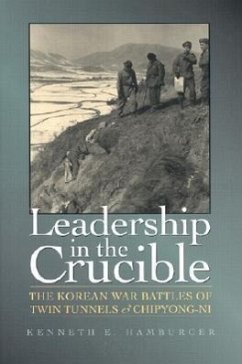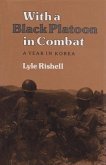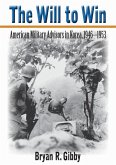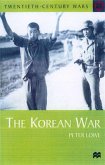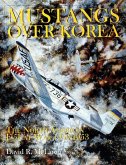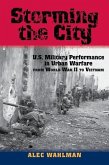At the pivotal battles of Twin Tunnels and Chipyong-ni in February 1951, U.N. forces met and contained large-scale attacks by Chinese forces. Col. Paul Freeman and the larger-than-life Col. Ralph Monclar led the American 23rd Infantry Regiment and the French Bataillon de Coree, respectively. In this careful consideration of combat leadership at all levels, Kenneth E. Hamburger details the actions of these units, offering stories of men sustaining themselves and one another to the limits of human endurance. He analyzes the roles that training, cohesion, morale, logistics, and leadership play in success or failure on the front lines, providing a well-organized discussion that is sure to become a classic in the field of leadership studies. Lt. Gen. Matthew Ridgway, Eighth Army commander, and Lt. Col. Ralph Monclar, the French Battalion commander, March 1951.
Hinweis: Dieser Artikel kann nur an eine deutsche Lieferadresse ausgeliefert werden.
Hinweis: Dieser Artikel kann nur an eine deutsche Lieferadresse ausgeliefert werden.

